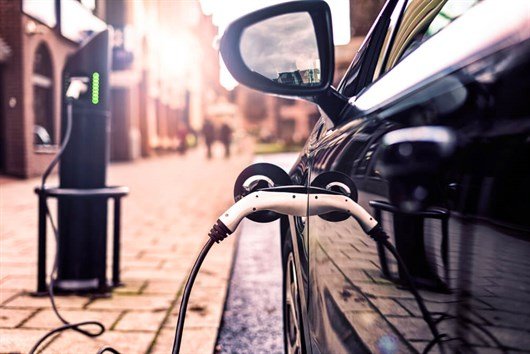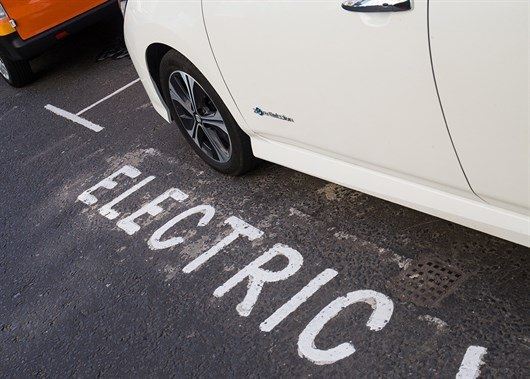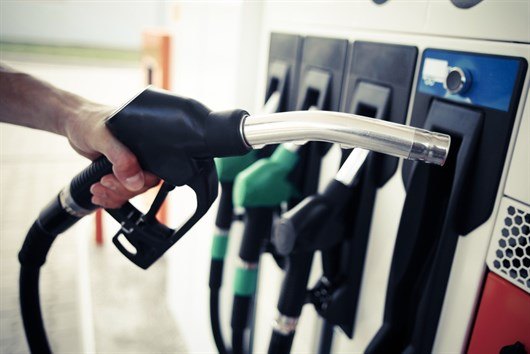SMMT revises 2022 new car market outlook down nine per cent

- SMMT expects 1.72 million new cars to be sold in 2022, down from a forecast of 1.89m.
- Semiconductor shortage, cost of living crisis and effect of Russian invasion of Ukraine all having an impact.
- New car market fell 15.8 per cent in April 2022 but electric vehicle sales rose 40 per cent.
The Society of Motor Manufacturers and Traders (SMMT) has revised its 2022 new car market forecast down from 1.89 million sales to 1.72m as parts shortages continue to impact supply.
That forecast still puts the new car market up by 4.5 per cent on 2021 but highlights the effect the semiconductor shortage is still having on supply, as well as anticipated impacts from rising living costs, the SMMT said.
It acknowledged that there are further supply chain and other uncertainties arising from the global political situation and the effects of the Russian invasion of Ukraine.
Overall, the new car market was down 15.8 per cent in April 2022 versus April 2021, with 119,167 total sales recorded.

Fewer electric and hybrid vehicles are also expected to be sold this year than previously forecast.
The SMMT was anticipating 307,000 battery electric vehicles (BEVs) to be registered this year but now expects 289,000 sales.
Its forecast for plug-in hybrid electric vehicles (PHEVs) has been revised from 163,000 sales to 144,000, while sales of hybrid electric vehicles are expected to be 193,000, down from 198,000.
This means that plug-in electric cars are now expected to account for a quarter of all registrations (25.2 per cent) in 2022, with BEVs comprising around one in six new cars on the road.

Sales of BEVs were up 40.9 per cent year on year in April, with 12,899 of the latest zero emission cars joining UK roads.
BEVs now have a 10.8 per cent market share, up from 6.5 per cent last year. Registrations of hybrids rose by 18.3 per cent but the number of new plug-in hybrid electric vehicle (PHEV) registrations decreased by a third. As a result, electrified vehicles comprised 27.9 per cent of all new car registrations during April.
A survey of 1,355 HonestJohn.co.uk readers in April found more consumers are willing to make the switch to electric, with this year's record fuel prices a major motivation.
About half (52 per cent) of respondents said the main reason they would buy an electric car is because they're cheaper to fuel.

Electric vehicles' environmentally friendly credentials due to their zero tailpipe emissions was the second most popular reason, motivating 35 per cent of respondents.
However, some consumers believe petrol and diesel cars still beat EVs when it comes to range and convenience to fill at the pump, with more than 61 per cent of survey respondents citing this as the reason they’d stick with a regular petrol/diesel car.
As technology improves, however, this majority is likely to decrease over time to further aid the upward sales trend of EVs.
Online car marketplace heycar has seen a drift from diesel to electric recently.
During April, the number of leads that heycar sent to dealers for new and used EVs was 82 per cent higher than in April 2021. Diesels, on the other hand, fell by around nine per cent over the same period.
"There is clearly a healthy public appetite to adopt EVs." Chris Evans, head of sales at heycar
Chris Evans, head of sales at heycar, said: "Despite the uncertainties in the economy and semiconductor production, there is clearly a healthy public appetite to adopt EVs, so as living costs continue to increase, we hope that the Government continues to support EV adoption."
How many new cars were sold in April 2022?
There were 119,167 total new car sales in the UK in April 2022, according to the latest figures from the Society of Motor Manufacturers and Traders (SMMT).
This was 15.8 per cent down on April 2021, despite showrooms being open for the entire month, unlike the previous year which saw lockdown restrictions in place until 12 April.
Global supply chain shortages, of which semiconductors are the most notable, have continued to constrain the delivery of new vehicles, the SMMT said.
How many electric vehicles were sold in April 2022?
There were 12,899 sales of battery electric vehicles (BEVs) in April 2022, a 40.9 per cent year on year increase, according to the latest figures from the Society of Motor Manufacturers and Traders (SMMT).
BEVs now have a 10.8 per cent market share, up from 6.5 per cent in 2021.
What is the new car sales forecast for 2022?
The Society of Motor Manufacturers and Traders (SMMT) expects 1.72 million new cars to be sold in 2022.
This is down nine per cent on its previous forecast (1.89m) as parts shortages, particularly of semiconductors, continue to impact supply.
The SMMT also anticipated further impacts from rising living costs and further supply chain disruption caused by Russia's invasion of Ukraine.
Should I buy an electric, diesel or petrol vehicle or keep my current car?

Will the manual driving test be phased out with the switch to electric cars?


 Sarah Tooze
Sarah Tooze
 Honest John Awards 2017: Land Rover Discovery Sport named Most Popular SUV for second year in a row
Honest John Awards 2017: Land Rover Discovery Sport named Most Popular SUV for second year in a row
 2022 Smart #1 SUV: price, specs and release date
2022 Smart #1 SUV: price, specs and release date
 2023 Ferrari Purosangue SUV: Prices, specs and release date
2023 Ferrari Purosangue SUV: Prices, specs and release date
 Citroen DS3 Racing revealed
Citroen DS3 Racing revealed
 Infiniti adds diesel to the range
Infiniti adds diesel to the range
 Volvo XC90 chosen as SUV of the year at 2014 Honest John Awards
Volvo XC90 chosen as SUV of the year at 2014 Honest John Awards
 March new car registrations better than expected
March new car registrations better than expected

.jpg)






hissingsid on 7 May 2022
This is not the most sensible time to be shopping for a new car.As well as the impact of the general "cost of living crisis", new car prices are becoming less and less affordable, hence the number of people opting to lease rather than buy. There is also the uncertainty factor. Petrol? Diesel? Hybrid? Electric? Hydrogen? Who knows?
I bought a new car in 2016 which has covered 26000 miles, and by extending the warranty I am protected from repair bills. Why would I change it?
Add a comment